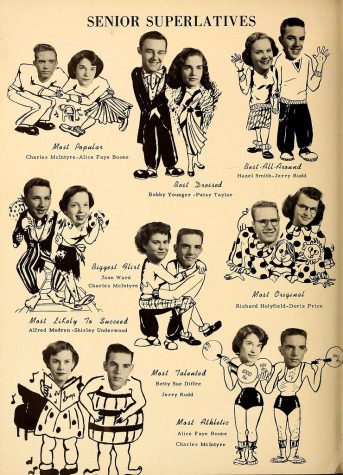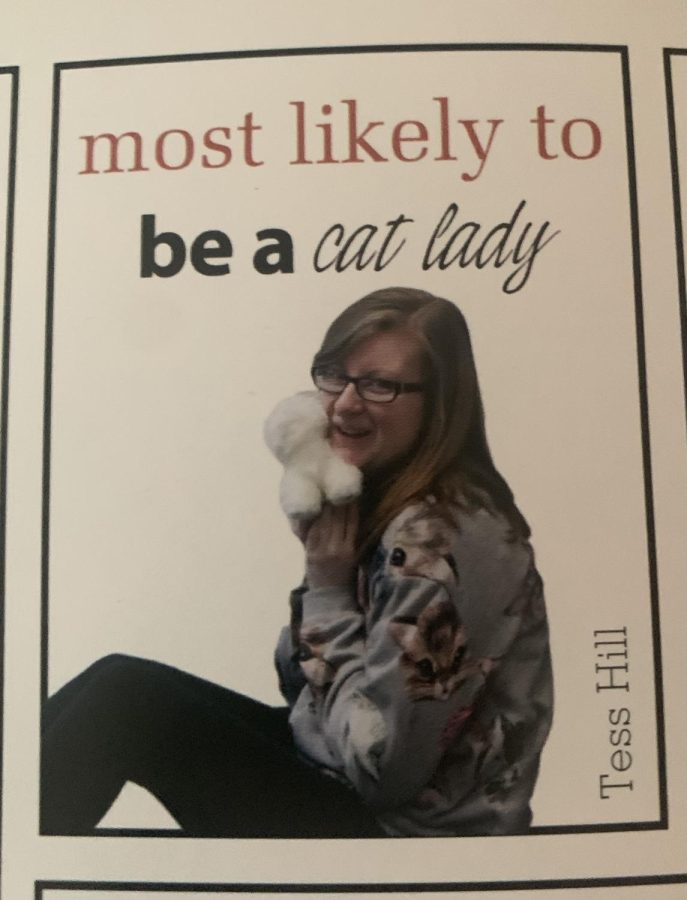Senior superlatives need to be reworked
February 10, 2023
Dances, dinner, pranks, and skip days – the traditions of a high school senior can be one of the most exciting parts of high school for some students.
Some of the earliest recorded instances of Senior Superlatives occurred in the 1920s. The superlatives featured in the yearbook back then are very different from the superlatives we see today, as recent years have proven to be more flexible with things like gender and sexuality bias.
Superlatives in high school were initially used to recognize the various qualities and characteristics of one or more people (Best Smile, Most Likely to Succeed, etc.), but with time they evolved into more of a popularity battle. “We create a massive popularity contest and tell the winners that they are ‘Senior Superlatives.’ The categories are ridiculous. Many of the survey questions highlight traits that show nothing about who a person really is,” Harry Thoma said in an editorial on The Cardinal Times.
This seems to be the most common argument amongst current and former students, as many individuals and groups online claim that high school superlatives are meant for the popular students of the school. On the same token, many students also believe that senior superlatives are an important part of the typical senior tradition list.
The issue with superlatives for many individuals stems from the fact that it is mostly the popular students who are nominated, sometimes even for multiple different superlatives. Do these students truly represent the accolades they have received? Or are they simply the school’s most well-known students? “But what happens when the nominations come out and, even in a class of over 500, there are multiple repeating names? When one or two groups of friends seem to rule the choices and outsiders only slip through the cracks on “smarter than the teacher?” Isabel Oliver said in an editorial by The Owl. While receiving a superlative can make kids feel a sense of pride, not receiving one can damage their self-esteem in school and in their daily life.
Superlatives in high school have unquestionably evolved over time to be less biased towards gender, ethnicity, and sexuality. The designs and sorts of superlatives have also evolved; in contrast to the staged photo of today, vintage yearbooks featured headshots with sketched bodies.  While this was a necessary improvement, is it enough? Students can feel singled out, especially when their peers are the ones who get to vote. “Not only do senior superlatives inspire competition, but they also have the possibility to insult those who win or lose their elections. It seems harsh to dub someone “worst driver” or embarrass a pair by saying “cutest couple that never was,” especially when they are nominated by their peers rather than running like in an election,” Oliver says in The Owl.
While this was a necessary improvement, is it enough? Students can feel singled out, especially when their peers are the ones who get to vote. “Not only do senior superlatives inspire competition, but they also have the possibility to insult those who win or lose their elections. It seems harsh to dub someone “worst driver” or embarrass a pair by saying “cutest couple that never was,” especially when they are nominated by their peers rather than running like in an election,” Oliver says in The Owl.
Like all senior traditions, senior superlatives feel like a “must-do” for some students. “Our parents had superlatives in their high school yearbooks, removing them would be disrupting the conventional senior experience,” Tess Hayden said in an opinion piece featured on The Pitch. While this is a valid point, the problem of equality and popularity must be addressed. Senior superlatives do not need to be eliminated; they simply need to be reworked. Increasing voting options and opportunities to select superlatives that truly represent not only the individual student, but the entire school, would be a great step toward supporting more students.


